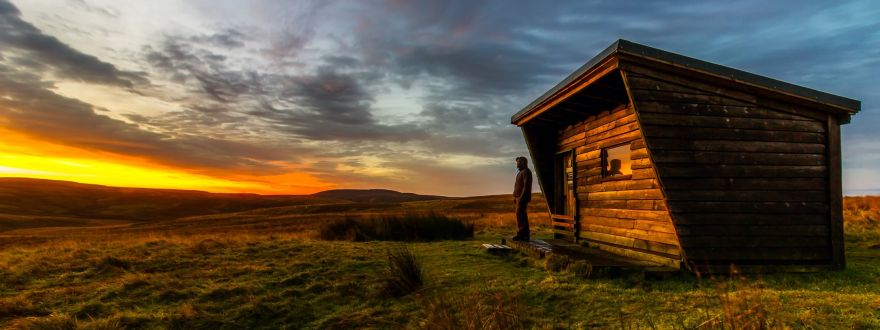
You may be familiar with the phrase "Tiny House" as the minimalist movement gains momentum; A no-frills lifestyle approach that cuts down on housing costs, ecological footprint, and materialistic consumption. Tiny houses are rarely more that 400 square feet and boast a myriad of multi-use spaces, efficient storage, and functionality hacks.
When people say "Tiny House" this can mean what is technically referred to as a Tiny house on Wheels (or THOW) or a tiny house structure on a foundation. They can be functional outbuildings, or self-sustaining Alternative Dwelling Units (or ADUs). An ADU or outbuilding would be tacked on to your existing home insurance policy, pending adherence to local building codes. However, a tiny house can be your primary residence, and in that case you'll need to get it insured!
Barber Insurance just successfully insured our first tiny house (on wheels!) through our company, Foremost. We were able to apply for Recreational Vehicle insurance because this particular dwellng unit was technically a functional road warrior. Albeit, the structure is happily nested in South Sonoma County and likely won't be seeing the road anytime soon. The loophole here is that their home was RVIA certified, meaning that the tiny house builder they bought it from jumped through all the hoops and paid all applicable fees to get the RVIA stamp of approval. Buying a tiny house from a RVIA compliant builder may cost more up front, but makes it much more insurable down the road (get it?).
If you're familiar with the tiny house movement, you may have heard of a Sonoma County native, Jay Shafer, who founded the Tumbleweed Tiny House Company. Although he has since parted ways from the (now) Colorado based tiny house builder, they remain one of very few national tiny house builders who comply to RVIA standards.
According to Tumbleweed Tiny House Company:
Insuring a self-built Tiny House RV can be tricky. Most RV insurance companies look for manufactured Tiny House RVs with a RVIA certification. You cannot get an RVIA certification if you are not a manufacturer that has passed extensive testing. That’s why there are so few tiny house companies that are RVIA certified (Tumbleweed is RVIA certified). Insuring your self-built Tiny House RV is not impossible, but it can be more difficult. We suggest reaching out to local insurance companies prior to building and taking hundreds of photos during construction.
Per Foremost, our company that happily insures compliant structures:
Tiny Houses that are built to Recreational Vehicle Industry Association (RVIA) standards or are National Organization for Alternative Housing (NOAH) certified/registered are eligible for the Foremost Travel Trailer program. Tiny Houses with built-in solar panels are acceptable, and producers can submit new units valued up to $150,000. Personal-use Tiny Houses built on a foundation may be eligible for the Foremost Dwelling Fire program!
To learn more about Foremost's approach to tiny house insurance, click here.





